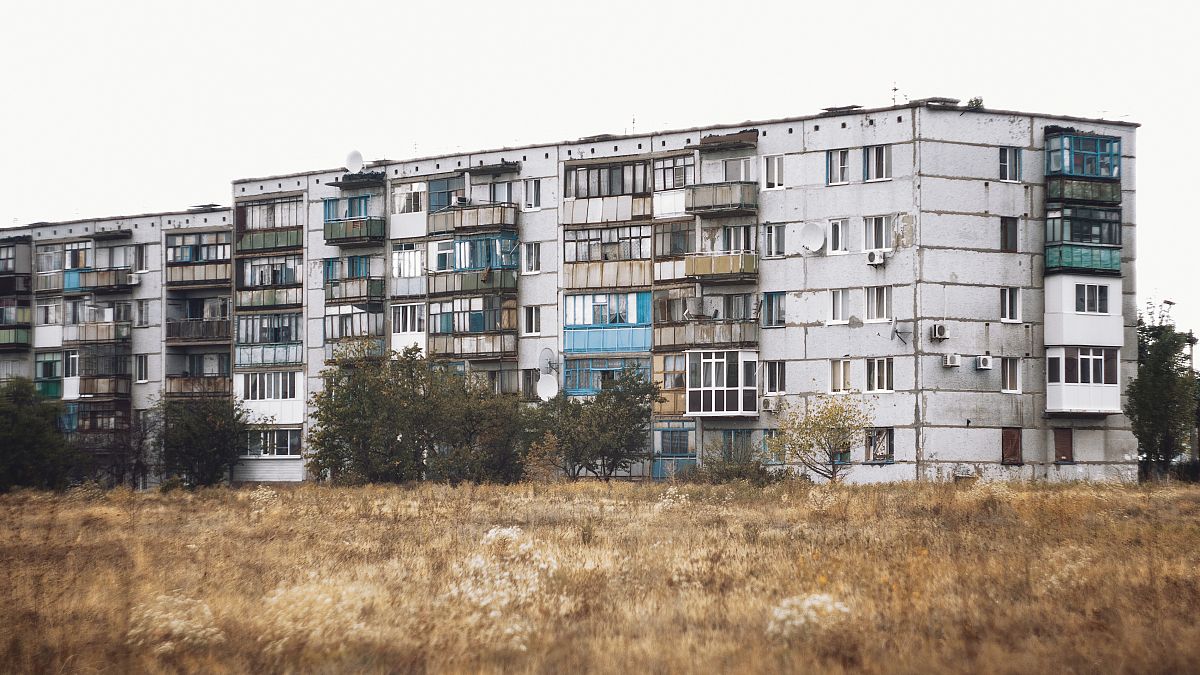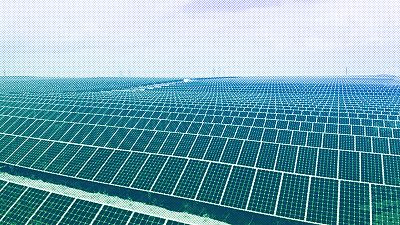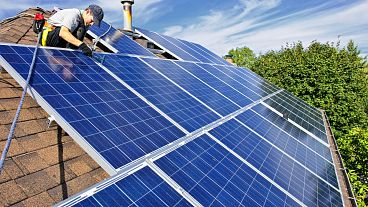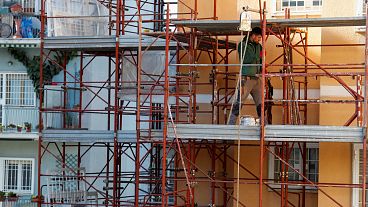European Performance of Buildings Directive aims to provide granular detail on how to decarbonise building stock, concluding a pillar of the European Green Deal.
At least 16% of EU countries’ worst performing non-residential buildings will be targeted for renovation by 2030 and 26% by 2033 as lawmakers backed a law today (March 12) to curb poor energy performance and reduce energy consumption in EU buildings in a plenary vote of the European Parliament (EP) in Strasbourg.
The revision of the European Performance Buildings Directive (EPBD), proposed by the EU executive in December 2021, is meant to modernise Europe’s building stock by 2050 by setting minimum energy performance standards in the non-residential sector, such as office buildings, schools and hospitals.
These standards will be established by member states and need to consider buildings exceeding a set threshold of maximum energy consumption, according to the final text agreed.
More than 220 million buildings, representing approximately 85% of non-residential EU building stock, were built before 2001 and are expected to remain standing in 2050, according to EU data.
Despite opposition from the European People’s Party group and Italy, EP lawmaker Ciarán Cuffe (Ireland/Greens) leading the file in parliament was “pleased with the achievement”, which saw 370 votes in favour and 199 against after a full house vote today.
“This directive will unlock public and private money and direct it to renovations... there is a lot of EU money ready to fund renovations, and member states are actually obliged to draw down EU funds to make sure their national plans are sufficiently funded,” said Cuffe after the vote.
“After two years, we have a balanced and practical agreement that injects affordability into Europe's Renovation wave,” said MEP Seán Kelly (Ireland/EPP), also responsible for the development of the bill.
Apart from fixing old buildings, member states will need to take action in non-residential buildings from 2026 to 2030 to progressively equip roofs with solar installations. They must consider solar installations in residential buildings too, and ensure that enough workers are available and properly trained to do so.
Guglielmo Cioni, Solar Heat Europe’s president, said solar thermal is already present on more than 10 million rooftops in Europe and was hopeful the solar mandate under the EPBD will "act as a catalyst to triple its deployment”.
For residential buildings, national governments need to reduce energy use by 16% by 2030 and between 20% to 22% by 2035. EU countries which have carried out renovations since 2020 will be able to count those towards that target, according to the text.
All new residential buildings must be built to a zero-emission building (ZEB) standard from 2030. So-called ZEBs must not produce any emissions on site and must run on a very low amount of energy, for example through rooftop solar. For public buildings, this standard will apply from 2028.
Lawmakers also agreed on an indicative 2040 phase out date for fossil fuels in heating and cooling. The major change will be the end of all subsidies for standalone boilers by 2025. Incentives will be offered by national governments to encourage the switch from fossil-fuelled heating and cooling systems to renewables.
"The inclusion of a phase-out date for public support and usage delivers a clear message: fossil heating is on its way out. The commission and our governments must keep raising the ambition and cutting energy bills and climate impact,” said Davide Sabbadin, acting policy manager at the European Environmental Bureau.
Buildings contribute 36% of the EU’s CO2 emissions and are responsible for about 40% of energy consumption, while nearly three in four buildings in Europe are energy inefficient, EU data reveals.
The EPBD agreed today is an update to an existing EU law introducing new EU-wide measures aimed at having a climate-neutral building stock by 2050, as set out by the EU’s European Green Deal. The approach, however, contains several flexibilities and exemptions, requiring EU countries to disclose the criteria used to exempt via their national renovation plans, which need to be finalised by the end of 2025.
Eva Brardinelli, buildings policy coordinator at the NGO Climate Action Network (CAN) Europe, said today’s vote will enable the sector to cut greenhouse gas emissions, unlock energy savings and deliver better performing buildings.
“The EPBD passing in plenary is the indication that, despite a challenging revision process and different positions, politicians agree that it is time to look ahead and ensure that the building sector is put on a decarbonisation pathway, as we are short of time,” Brardinelli told Euronews.
After the green light from the parliament, the Council will formally adopt the revised EPBD. Implementation is due to start after EU countries present their national renovation plans in 2026, after national governments deliver their renovation plans to the commission.
Subscribe here to stay informed on the latest EU policy developments with our weekly newsletter, “The Policy Briefing”. Your weekly insight on European rulemaking, policy issues, key events, and data trends.



